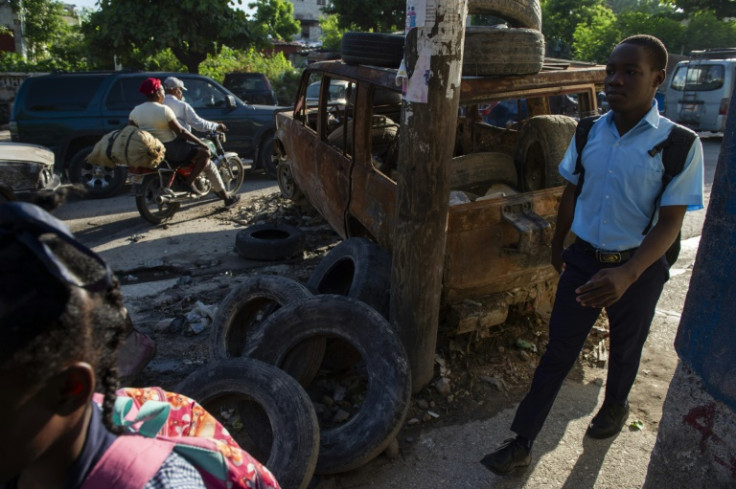
Haiti's presidential transition head, Edgard Leblanc Fils, backed the U.S. government's push for a formal U.N. peacekeeping mission in the country, before calling for a "global solidarity" during his speech at the United Nations General Assembly on Thursday.
Haiti's struggle with armed gang violence has forced many residents to migrate to other countries for a better life. U.N. Secretary-General António Guterres has previously called Haiti's crisis "a human tragedy with a very well-known history."
During his speech, Fils mentioned that Haiti was the first Black independent nation in the world. However, he pointed out that the country was "today the greatest victim of a historical injustice, which has not only delayed our development but saddled our people with a burden," the Miami Herald reported.
"We demand recognition of the moral and historic debt and implementation of justice."
Fils added the ongoing gang violence and abuse of children should be seen as "a crime against humanity," highlighting that in the past, U.N. peacekeeping missions have faced problems.
The mission sent in 2004, after a violent revolt forced President Jean-Bertrand Aristide to leave, had led to some members being accused of sexual abuse. It was also later linked to a cholera outbreak after the 2010 earthquake.
Despite these issues, Fils said Haiti still needed help, especially in securing funding for the current security support mission led by Kenya.
"This transformation would not only allow to secure more stable financing and to expand the capabilities of the mission, but also strengthen the commitment of member States to security in Haiti. I am convinced that this change of status, while ensuring that errors of the past are not repeated, will guarantee the full success of the mission in Haiti," he added.
Fils noted that the rise of armed gangs, widespread violence, and political instability have made the nation extremely vulnerable. People were living in fear, unable to move freely around the country, go to work, or send their children to school safely, especially in the capital, Port-au-Prince.
In May, the main international airport was shut for months amid ongoing gang violence in the country. In April, gunfire broke out in Haiti's capital Port-au-Prince, causing healthcare workers to stop providing urgent medical care for thousands of Haitians.
© 2024 Latin Times. All rights reserved. Do not reproduce without permission.











